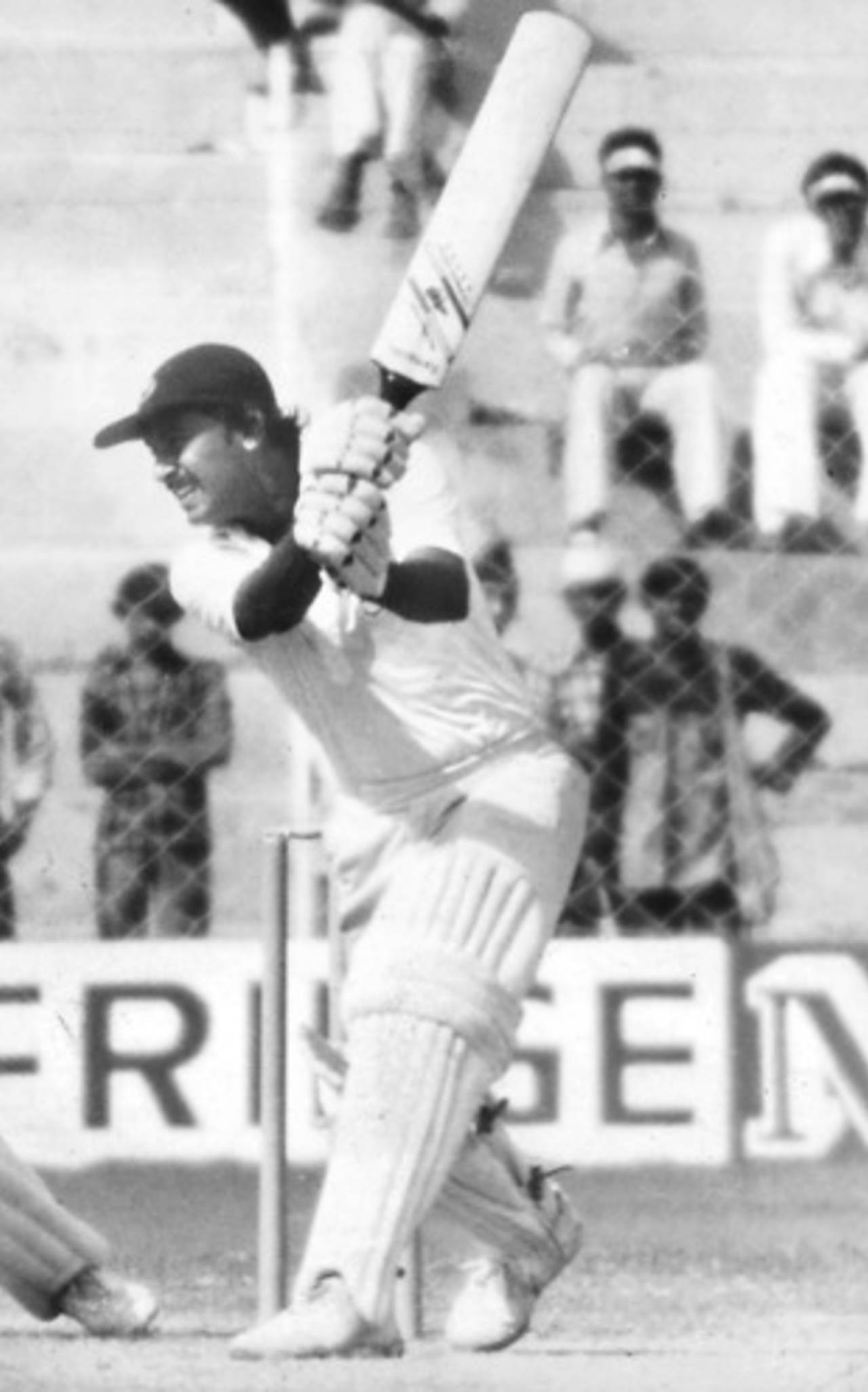Both in life and in death,
TE Srinivasan deserved better. When he succumbed to cancer, he had just turned 60; when he succumbed to the political machinations in the Indian team, he was 30 and had played just one Test, in Auckland. Sunil Gavaskar apart, TE probably understood batting better than any of his contemporaries; he didn't merely make runs, he knew how runs could be made.
He was ignored after that one Test - the next series was at home against England, but the Tamil Nadu batsman did not make it even to the South Zone team - just as his memory was ignored by the Indian team in Wednesday's one-day international against New Zealand in Bangalore. A tribute would have been fitting. A two-minute silence before the match perhaps. Or a show of kinship with players wearing black bands.
Indian teams in the past have been quick to pay respects even to non-players. After Mark Mascarenhas was killed in an accident, the players wore black bands during a Test. Mark was a cricket buff, and more importantly, Sachin Tendulkar's agent and friend. TE was something more. A Test match player, and therefore special, his place in history assured.
The Indian team has a chance to make up for its apathy when the teams line up for the final one-dayer in TE's hometown, Chennai.
TE turned out for the MCC and India Pistons in Chennai. In the 1970s and 80s, he filled the grounds even for league matches. When word spread that he was batting, the crowds appeared miraculously, cheering him on; when he was out, a big chunk disappeared just as miraculously. In the years between the eras of CD Gopinath and Krishnamachari Srikkanth, TE was the finest Tamil Nadu batsman - a case can be made for his being the finest ever, his back-foot play alone placing him above the rest. He was the quintessential Tamil Nadu batsman too, capable of unexpected beauty at unexpected moments but prey to self-doubt at other times.
He walked to the wicket with a swagger, collar up in the manner of his hero ML Jaisimha, looked around the field with the air of a man who understood it belonged to him, and struck the ball with startling power for a man his size. TE carried the swagger into first-class and international cricket. The stories were exaggerated in the re-telling, and good one-liners were attributed to him in the manner in which people like Dorothy Parker or Oscar Wilde were given credit for things they didn't say.
"Tell Dennis Lillee I have arrived," is the best-known of them; and TE got so much publicity out of it he wasn't going to deny the story of his first quote in Australia. Nor did he bother to deny the story in Mike Atherton's autobiography where Gavaskar is quoted as saying - erroneously - that TE didn't have a long career because of his "low caste" status.
He batted No. 3 in the second innings of his
only Test where he scored 29 and 19. The man who replaced him for the home series, one of the most boring ever played on Indian soil, Kirti Azad, had scores of 14 and 17, 24, 16. TE had been cast aside for an inferior batsman who could bowl a bit.
TE would have been a natural for the World Cup a year later. He would have been 33, but this man who swore by Test cricket but was just as comfortable in the one-day game, as centuries against the clock in the Duleep and Deodhar Trophy had shown.
It is possible TE was born in the wrong decade. The Indian system was excessively feudal, and bowing and scraping to captains and officials was expected of players working their way to the top. TE didn't suffer fools gladly, and spoke his mind clearly. It made him fascinating company but the word always got back to those he aimed his barbs at. He rubbed too many people up the wrong way with his credo - anything for a laugh. Gavaskar mistook TE's casual humour for arrogance when it might have been merely a case of over-compensation by an essentially diffident personality.
TE also had the right to expect better treatment from his cricket association, the sort of support that Srikkanth, for example, claimed as if by right. But the quota system was in operation then, and cricket associations had to choose.
Soon after he was struck by the cancer that was to end his life, TE contemplated building a hospital for cancer patients. He had come into money after selling some land. It would have been a worthy project; the contrarian that he was, TE could charm people just as easily as he could do the reverse.
It would be a travesty if the Indian team were to keep silent over the death of this gifted and articulate player who gave pleasure to so many.
Suresh Menon is a writer based in Bangalore
